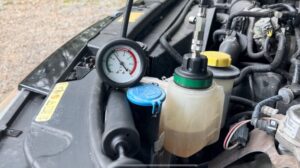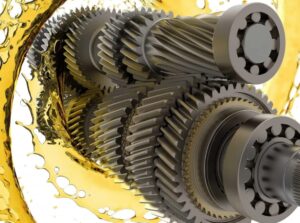Guide To Battery Types and Their Uses in Automotive
Introduction to Automotive Batteries
Different Types of Automotive Batteries
Automotive batteries can be broadly categorized based on their composition and usage. The most common types include:
Lead-Acid Batteries: Widely used in traditional internal combustion engine vehicles.
Lithium-Ion Batteries: Predominant in electric and hybrid vehicles due to their high energy density.
Nickel-Metal Hydride (NiMH) Batteries: Found mainly in hybrid vehicles.
Emerging Technologies: Batteries such as solid-state and graphene offer promising future alternatives.
Lead-Acid Batteries: A Classic Choice
Lead-acid batteries have been the cornerstone of automotive power systems for decades. These are reliable, cost-effective, and widely available.
Types of Lead-Acid Batteries:
Flooded Batteries: Conventional wet-cell batteries that require maintenance.
Absorbent Glass Mat (AGM) Batteries: Spill-proof and designed for modern vehicles with advanced electrical needs.
Gel Batteries: Designed for extreme conditions, offering enhanced resistance to vibration and spills.
Applications: Lead-acid batteries are commonly used in conventional vehicles for starting, lighting, and ignition (SLI) purposes. They also serve as auxiliary power sources in electric and hybrid vehicles.
Lithium-Ion Batteries: The Modern Powerhouse
Lithium-ion (Li-ion) batteries dominate the electric and hybrid vehicle market due to their superior performance characteristics.
Advantages:
High energy density, leading to extended range for EVs.
Lightweight compared to lead-acid batteries.
Low self-discharge rate.
Applications: Primarily used in electric vehicles (EVs) like Tesla and hybrid models. These batteries power high-performance vehicles and provide the energy necessary for sustainable mobility.
Nickel-Metal Hydride Batteries: A Balancing Act
Nickel-Metal Hydride (NiMH) batteries are a durable and efficient alternative often found in hybrid vehicles.
Benefits:
Eco-friendly with recyclable components.
Longer lifespan than lead-acid batteries.
Better suited for varying temperatures compared to lithium-ion batteries.
Applications: NiMH batteries are used extensively in hybrids such as the Toyota Prius, providing a balance between cost and efficiency.
Emerging Battery Technologies in Automotive
The automotive industry is witnessing breakthroughs in battery technology:
Solid-State Batteries: These batteries use a solid electrolyte, offering improved safety and energy density.
Graphene Batteries: Lightweight and incredibly efficient, they promise faster charging times.
Sodium-Ion Batteries: A cost-effective alternative with abundant raw materials, ideal for large-scale applications.
These advancements are expected to redefine the future of electric and hybrid vehicles.
Factors to Consider When Choosing a Battery

Selecting the right battery involves evaluating various factors:
Compatibility: Ensure the battery aligns with your vehicle’s specifications.
Climate: Extreme temperatures can affect battery performance.
Lifespan: Opt for batteries with long warranties and proven durability.
Cost: Balance initial investment with long-term savings.
Maintenance and Care of Automotive Batteries
Proper maintenance can extend a battery’s life and performance:
Regular Inspections: Check for corrosion, leaks, and secure terminals.
Cleanliness: Keep the battery surface and connections clean to avoid build-up.
Charging Practices: Avoid overcharging, which can lead to overheating.
Storage: For infrequent use, disconnect the battery and store it in a cool, dry place.
Environmental Impact of Automotive Batteries
Automotive batteries pose environmental challenges due to their chemical components. Recycling and proper disposal practices are vital to minimize ecological damage.
Solutions:
Lead-acid batteries boast a recycling rate exceeding 95%, making them environmentally friendly.
Li-ion battery recycling initiatives focus on recovering valuable metals like cobalt and lithium.
Promoting sustainable practices can help reduce the automotive industry’s carbon footprint.
Future Trends in Automotive Batteries
The evolution of battery technology continues to accelerate:
Enhanced Energy Densities: Future batteries aim to store more energy in smaller packages.
Fast-Charging Capabilities: Innovations like ultra-rapid charging systems are emerging.
Integration with Renewable Energy: Batteries will play a key role in grid storage and vehicle-to-grid (V2G) technologies.
Wireless Charging: Seamless and efficient power delivery systems for EVs are under development.
The shift toward electric mobility and sustainability will drive the automotive battery landscape for decades to come.
Final Thoughts
Understanding automotive battery types and their uses is crucial for making informed decisions as a vehicle owner. From the traditional lead-acid options to advanced lithium-ion and emerging technologies, the landscape is rich with choices tailored to various needs. Proper maintenance, recycling practices, and keeping an eye on future trends will ensure that you’re ready for the road ahead, no matter what you drive.
FAQs

Radiator Stop Leak UAE: Quick Fix for Vehicle Cooling System Leaks
Radiator Stop Leak UAE: Quick Fix for Vehicle Cooling System Leaks Discover More Introduction: The Unforgiving UAE Climate and Your Vehicle’s Lifeline The United Arab Emirates’ automotive landscape is defined by extremes. Ambient temperatures that regularly surpass 45°C (113°F), coupled with intense urban congestion and long, high-speed desert drives, create a perfect storm of thermal stress for every vehicle. In this environment, your engine cooling system is not merely a subsystem; it is the single most critical component preventing catastrophic engine failure.

What Type of Transmission Oil in UAE Does My Car Need? Your Complete Guide
What Type of Transmission Oil in UAE Does My Car Need? Your Complete Guide Discover More Navigating the vast, sun-baked highways of the United Arab Emirates—from the dynamic urban sprawls of Dubai and Abu Dhabi to the majestic desert dunes and the tranquil mountain passes of the Hajar range—places extraordinary mechanical and thermal stress on every component of your vehicle. While conscientious drivers often prioritize engine oil changes, the vital lifeblood safeguarding the transmission, the complex heart of your car’s

Guide to UAE Turbine Oil Selection Application & Management for Industrial Facilities
Guide to UAE Turbine Oil Selection, Application, and Management for Industrial Facilities Discover More In the hyper-competitive industrial landscape of the United Arab Emirates, where operational excellence directly translates to economic advantage, turbine lubrication represents a critical nexus of reliability engineering and strategic asset management. This comprehensive guide, developed with technical insights from Rumanza Lubricants, provides an unprecedented deep dive into the science, selection criteria, and life-cycle management of turbine oils specifically engineered for the extreme operating conditions of the

Synthetic vs. Mineral Hydraulic Oil in UAE : Which is Best for Your Operation?
Synthetic vs. Mineral Hydraulic Oil in UAE : Which is Best for Your Operation? Discover More Across the dynamic landscape of the United Arab Emirates—from the megaprojects of Dubai Marina to the intricate conveyor systems of Jebel Ali Port, from the massive hydraulic shovels in Al Dhafra quarries to the precision automated lines in Abu Dhabi’s industrial cities—the silent, powerful force of hydraulics is indispensable. These systems convert fluid power into monumental force and precise motion. At the core of

What is a Pour Point Depressant? | Benefits, Uses & How It Works Mechanism
What is a Pour Point Depressant? | Benefits, Uses & How It Works Mechanism Discover More In the intricate world of lubricant formulation, few additives play as critical yet understated a role in cold-weather operability as Pour Point Depressants (PPDs). These specialized chemical compounds are the linchpin that prevents machinery from seizing up when temperatures plummet. This in-depth guide goes beyond the basics, exploring the sophisticated chemistry, detailed mechanism, nuanced benefits, and practical considerations of PPDs. We will also examine the

Guide to Gasoline Engine Oils for UAE’s Extreme Climate: Engineering Peak Performance
Gasoline Engine Oils for UAE’s Extreme Climate: Engineering Peak Performance Discover More In the heart of the Arabian Peninsula, the United Arab Emirates stands as a testament to human ambition, with its engineering marvels and endless highways. Yet, this environment of soaring achievement is also one of the most punishing on Earth for machinery. For your vehicle—whether a nimble city sedan, a powerful family SUV, or a high-performance sports car—the UAE’s climate is a relentless adversary. The choice of engine

What are Polyol Ester Oils & Lubricants – Properties & Applications
What are Polyol Ester Oils & Lubricants – Properties & Applications Discover More In the intricate world of industrial machinery, automotive engines, and advanced refrigeration systems, the choice of lubricant is not merely a maintenance task—it’s a critical engineering decision. While conventional mineral oils have served us for over a century, the demands of modern technology require fluids that can perform under extreme pressure, temperature, and environmental stress. This is where synthetic lubricants, specifically Polyol Ester oils, come to the forefront.